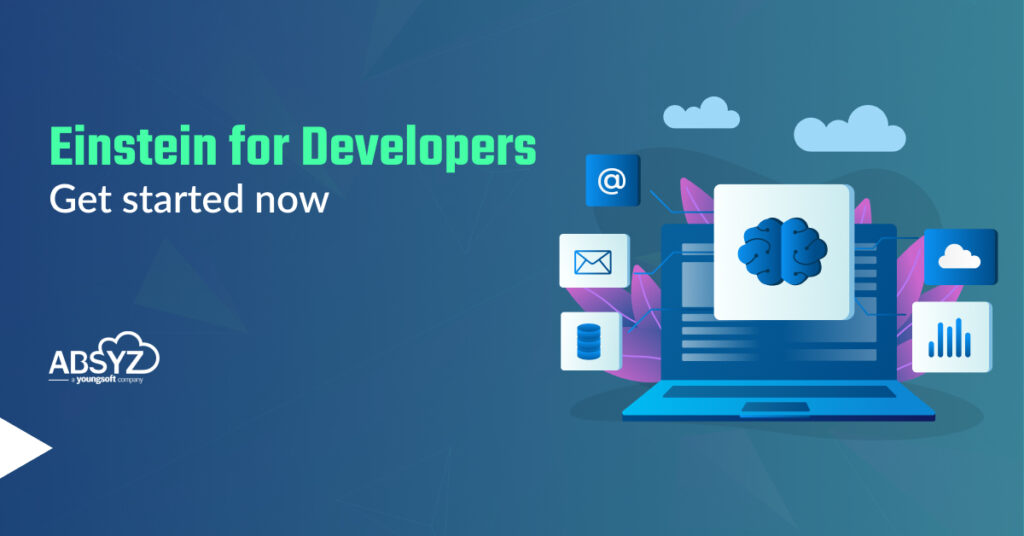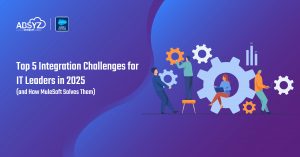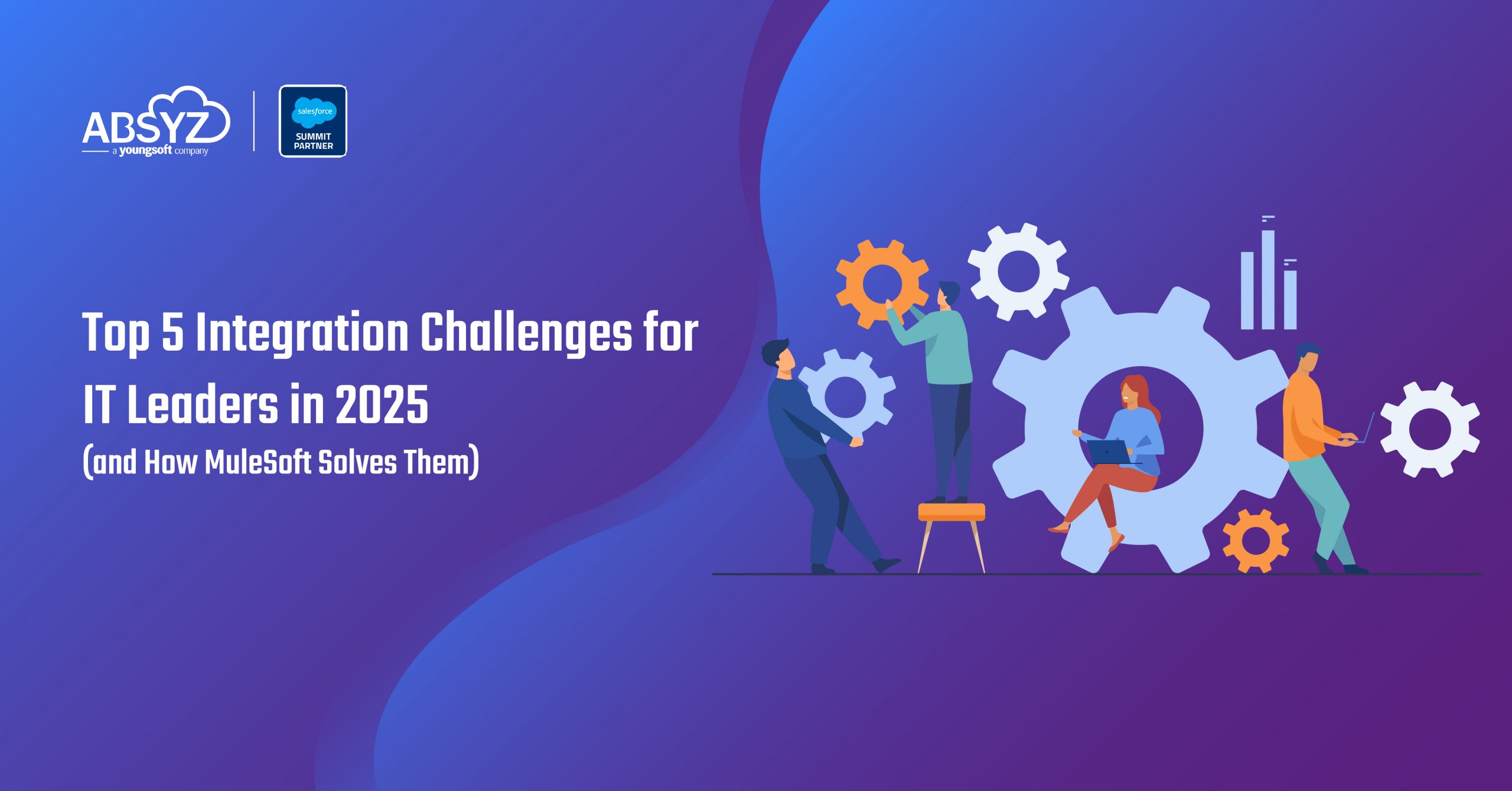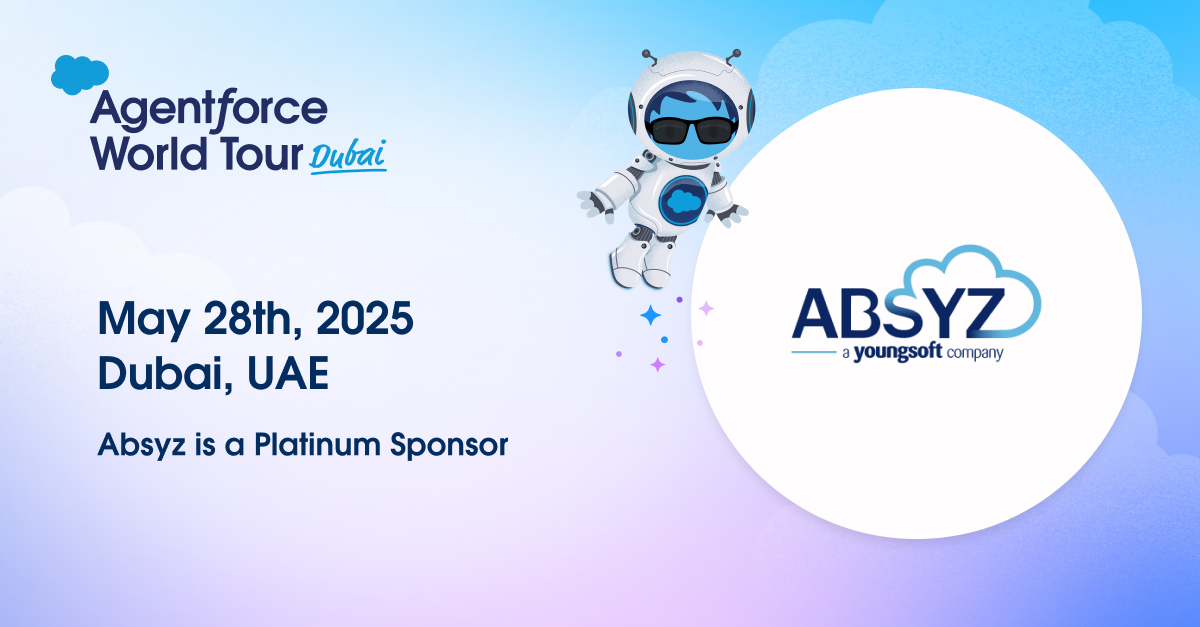Salesforce’s generative AI solution, Einstein for Developers, was unveiled at this year’s Trailblazer DX event and now it is officially in Open Beta. Generative AI is a transformative tool that empowers developers to shape the future of software development. This tool is designed to harmonize with Salesforce’s languages and frameworks, boasting the extraordinary ability to generate Apex code through natural language input. This feature streamlines the development process, making programming more accessible to all and driving increased developer efficiency.
Soon, Einstein for Developers will support Lightning Web Components (LWC). By initiating your Apex development journey with Einstein, you can witness its potential to redefine and streamline your development process within the Salesforce ecosystem. In this blog post, we’ll explore how Einstein for Developers can enhance your Apex development journey and streamline your development process within the Salesforce ecosystem.
Why Einstein for Developers Stands Out Among Other AI Coding Tools:
Current generative AI coding tools primarily rely on publicly accessible languages like Java and Python, along with publicly available code for their training. However, when it comes to Salesforce-specific languages such as Apex and Lightning Web Components (LWC), which are proprietary to the Salesforce platform, these tools often encounter limitations due to their lack of specialized training data. Consequently, their ability to offer precise recommendations and support within the unique Salesforce coding environment is notably constrained.
Let’s Quickly Set Up Einstein for Developers:
1) Login to a salesforce developer org and go to setup. Now search for ‘Einstein For Developers’ in the Quick Find box and select it.
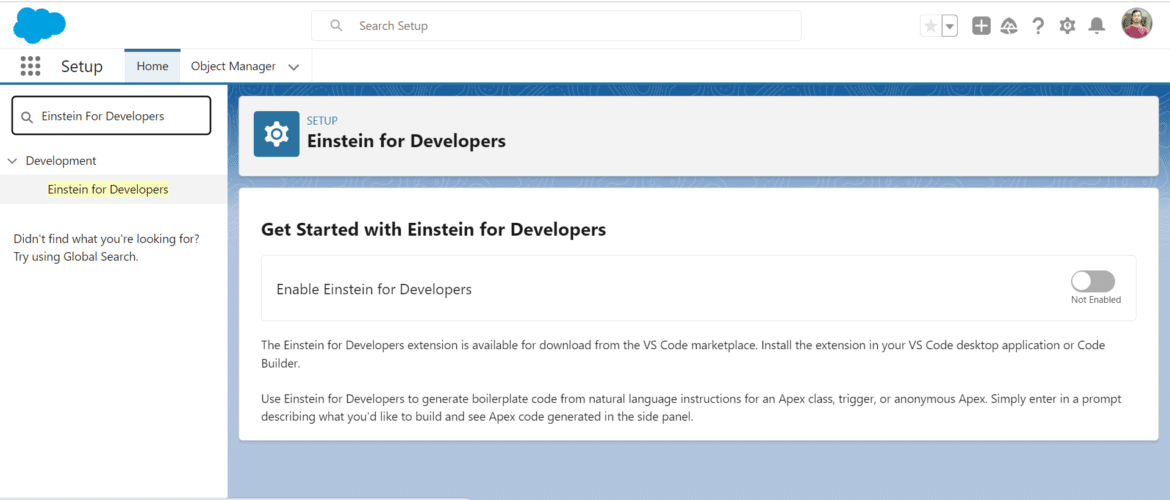
2) Click on the button next to “Enable Einstein for Developers” and accept the Product Terms.
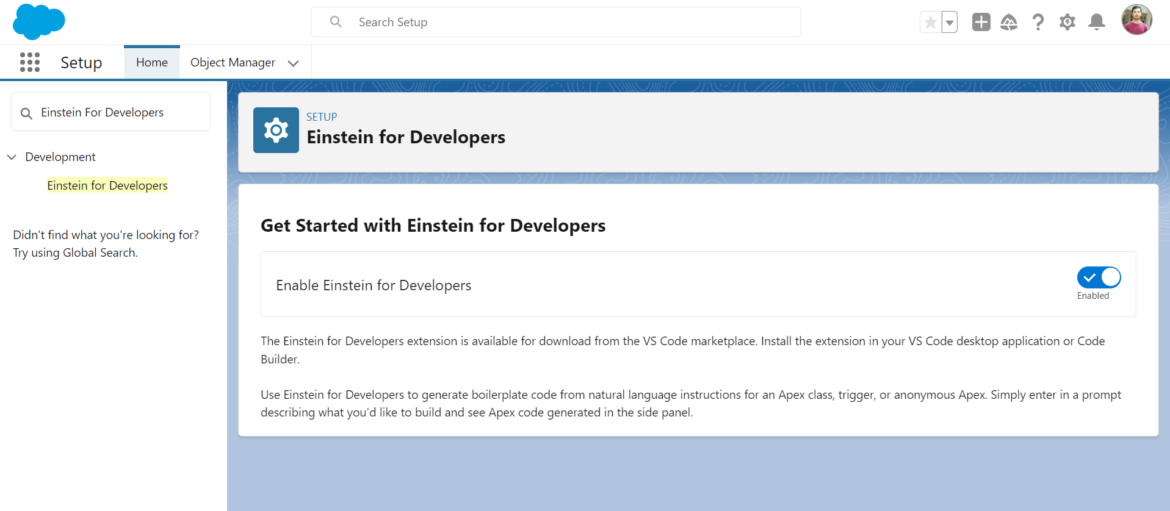
3) Once enabled, open VS Code and create a Salesforce DX project if you haven’t already done so, and authorize the org in which Einstein for Developers is enabled. Now, install the Einstein for Developers Visual Studio Code extension on your VS Code Desktop. Einstein will also be available in Code Builder, which is expected to be generally available in October.
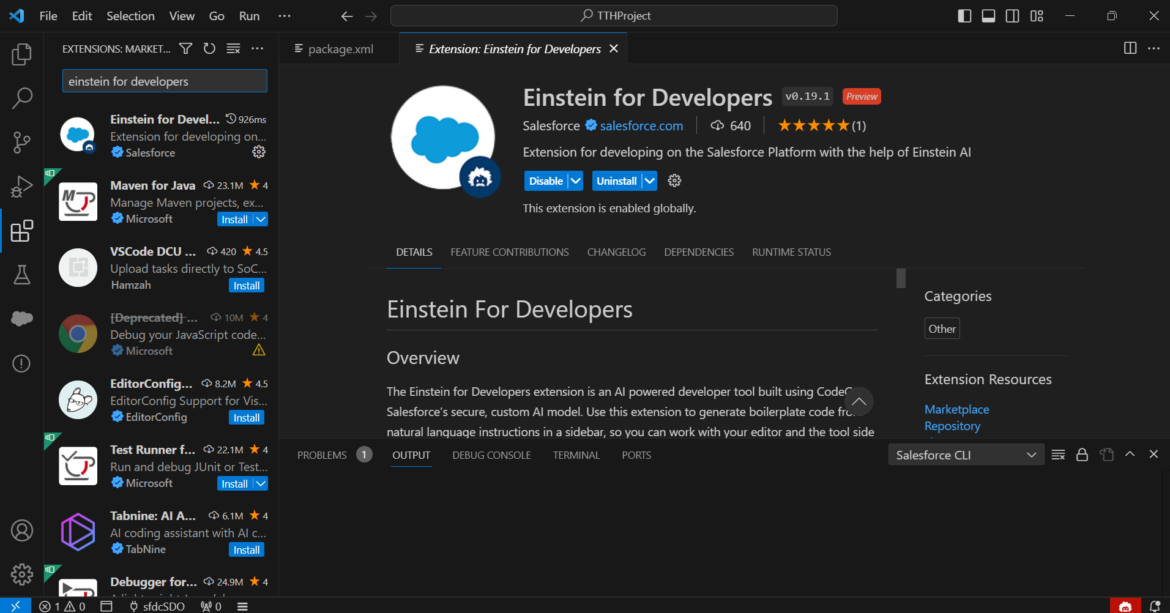
4) If you are using a scratch org, edit and save the config/project-scratch-def.json file with the following snippet to enable Einstein for Developers:
{
“orgName”: “Absy”,
“edition”: “Developer”,
“features”:[“Communities”, “ServiceCloud”, “EinsteinGPTForDevelopers”]
}
5) Now you are ready to generate Apex code through Einstein. Click on the Einstein Sidebar on the left side and type your question.
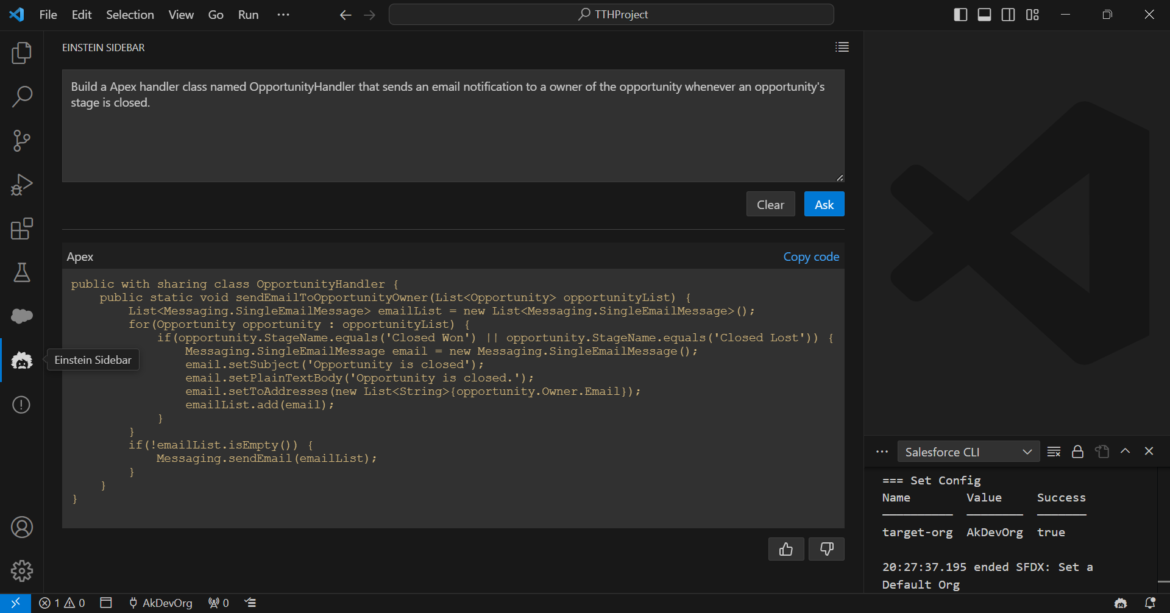
6) Sometimes, Einstein-generated code may not fulfill your expectations and may need some customization based on your requirements. The Einstein: History and Feedback panel within the IDE allows you to share feedback about the generated output, and this feedback helps them train their LLM and improve your output!
In conclusion, Einstein for Developers is just the start. Brace yourself for upcoming Salesforce add-ons like LWC support, code performance checks, predictive code completion, and conversational assistance. The future of development with Salesforce is brighter than ever, promising a more efficient and creative experience. Stay tuned for limitless possibilities!
Source: https://developer.salesforce.com/tools/vscode/en/einstein/einstein-overview


